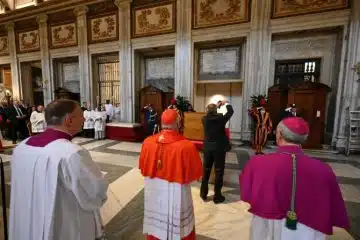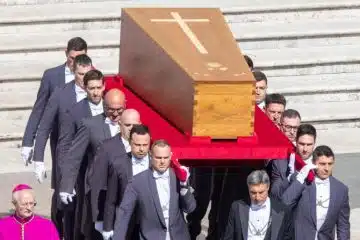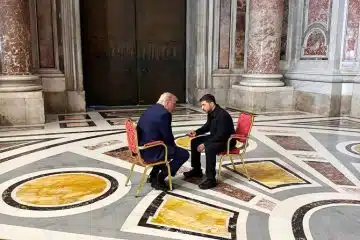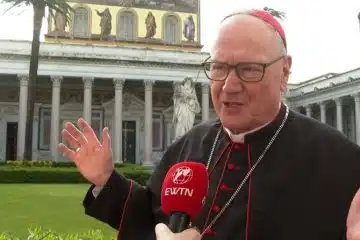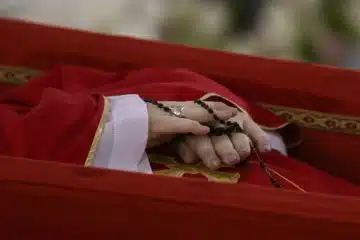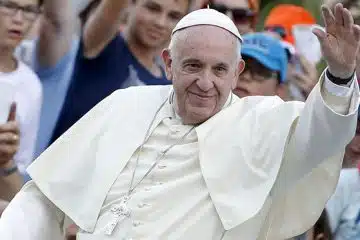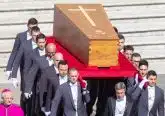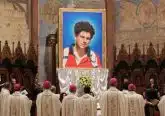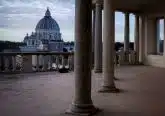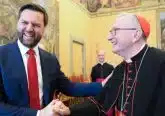Vatican doctrine office reaffirms that Catholics cannot be Freemasons
Vatican City, Nov 15, 2023 / 05:40 am
The Vatican Dicastery for the Doctrine of the Faith (DDF) released a document on Wednesday reaffirming that Catholics are forbidden from becoming Freemasons.
The new document signed by Pope Francis and DDF Prefect Cardinal Victor Fernández was written in response to a bishop from the Philippines who had expressed concern at the growing number of Catholics in his diocese who are taking part in Freemasonry and asked for suggestions for how to respond pastorally.
The dicastery’s response, dated Nov. 13, calls for “a coordinated strategy” involving all of the bishops in the Catholic Bishops’ Conference of the Philippines to promote catechesis “in all parishes regarding the reasons for the irreconcilability between the Catholic faith and Freemasonry.”
The Freemasons are the largest worldwide oath-bound secret society. Freemasonry promotes ideas and rituals incompatible with the Catholic faith, including indifferentism, or the position that a person can be equally pleasing to God while remaining in any religion, and a deistic concept of a “Great Architect of the Universe.”
The Vatican document reaffirms that “those who are formally and knowingly enrolled in Masonic Lodges and have embraced Masonic principles” fall under the provisions of the Catholic Church’s 1983 “Declaration on Masonic Associations.”
The 1983 declaration, signed by Cardinal Joseph Ratzinger when he was prefect of the Congregation for the Doctrine of the Faith, declares that Catholics who enroll in Masonic associations “are in a state of grave sin and may not receive holy Communion.”
The new DDF document further clarifies that these measures “also apply to any clerics enrolled in Freemasonry.”
The dicastery invites bishops in the Philippines to consider making a public statement on the Church’s teaching on Freemasonry.
“Membership in Freemasonry is very significant in the Philippines; it involves not only those who are formally enrolled in Masonic Lodges but, more generally, a large number of sympathizers and associates who are personally convinced that there is no opposition between membership in the Catholic Church and in Masonic Lodges,” the DDF document says.
“On the doctrinal level, it should be remembered that active membership in Freemasonry by a member of the faithful is forbidden because of the irreconcilability between Catholic doctrine and Freemasonry,” it adds.
The Catholic Church’s prohibition on Freemasonry dates back to Pope Clement XII, who formally condemned it in a papal bull in 1738.
Earlier this year, UCA News reported that Catholics in the Philippines had raised concerns that some of the participants in the diocesan and national Synod on Synodality consultations were members of the Freemasons, which some reported had created confusion regarding Church’s teaching on the matter.
The Filipino Catholic bishops’ conference issued a clarification in March declaring that bishops in the Philippines have “always maintained and defended the official Catholic (magisterial) position on the unacceptability of Masonry, given its serious errors both in doctrine (philosophical tenets) and practices.”
Fernández addressed the DDF note to Bishop Julito Cortes of Dumaguete, Philippines. In it, he also points to the pastoral guidelines published by the Filipino bishops’ conference in 2003.
Pope Francis approved the document on Freemasonry in a meeting with Fernández on Nov. 13. It is available on the Vatican website in English and Italian.


